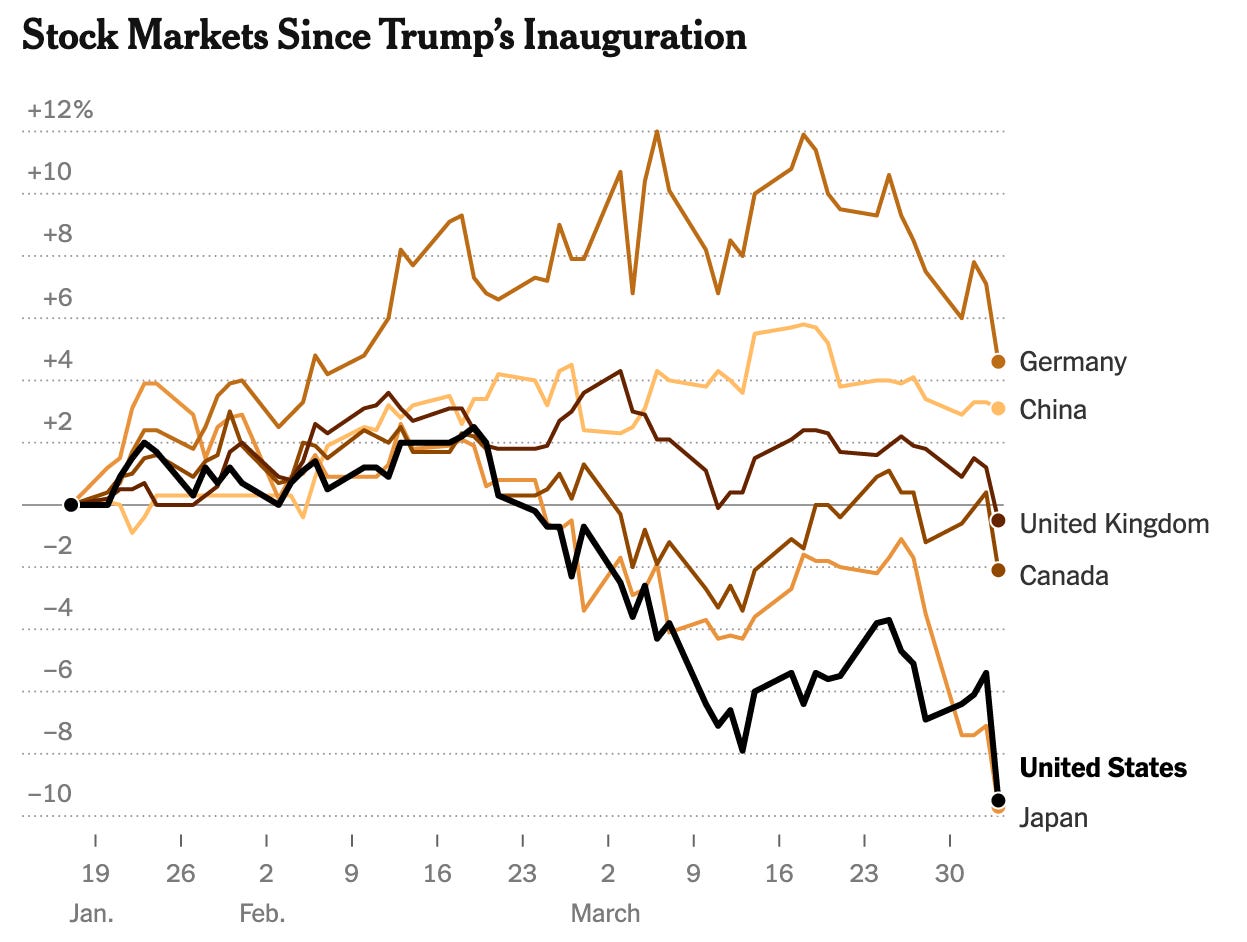The Economic Impact of Trump's New Tariffs: A Closer Look
Trump Tariffs to Cost Americans $2,100 More Per Year
The recent announcement of new tariffs by the Trump administration has sent shockwaves through global markets and raised concerns among consumers and businesses alike.
President Donald Trump has announced sweeping new tariffs, including a baseline 10% tariff on all imported goods, with much higher rates for certain countries. According to the Nonpartisan Tax Foundation, the average American household will pay $2,100 more per year for goods due to these tariffs. Additionally, the average U.S. import tax will rise from 2.5% in 2024 to 19% in 2025—the highest level since the Smoot-Hawley era of the early 1930s. As a result, Americans’ after-tax incomes are expected to decline by 2.1% on average this year. Businesses will likely pass on the increased costs of imported materials and products, leading to higher prices for consumers. The economic burden will be felt most acutely by middle and lower-income households, who spend a larger proportion of their income on goods that are now subject to higher tariffs.

The global stock markets have reacted sharply to the announcement of the tariffs. Investors are pulling money out of U.S. shares, and companies that rely on global supply chains are seeing their stock prices plummet. The tariffs, which include duties as high as 54% on certain goods, are part of a broader strategy to address trade imbalances and protect American industries. However, the immediate effect has been increased volatility in the markets and uncertainty among businesses.
In response to the U.S. tariffs, several countries have announced their own retaliatory measures. For instance, Canada has pledged to impose a 25% tariff on U.S. automobiles that do not comply with the North American free trade agreement. Interestingly, some of these tariffs have been applied to countries that do not have citizens, highlighting the broad and somewhat indiscriminate nature of the tariff policy.
In France, President Emmanuel Macron has called for European companies to suspend planned investments in the United States until the situation with the tariffs is clarified. Macron described the tariffs as "brutal and unfounded," and emphasized the need for a united European response.
America’s traditional allies appear to be reorienting their trade and investment strategies, viewing the tariffs as a clear sign that the United States is retreating from its leadership role in the global economic order. As new trade blocs form and foreign capital pulls back, the consequences for U.S. growth, jobs, and global influence could be profound.
The new tariffs introduced by the Trump administration are poised to have far-reaching effects on both the U.S. and global economies. While the intention behind these tariffs is to protect American jobs and industries, the immediate impact has been increased costs for consumers and heightened market volatility. As countries respond with their own tariffs, the potential for a full-blown trade war looms large, with significant implications for international trade and economic stability.




